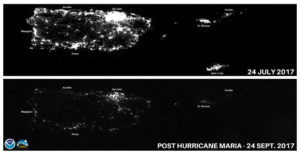Every six weeks is usually a good schedule for testing your thyroid hormones. This is because serious drug interactions and side effects can…. https://africarx.co.za/buy-provigil-south-africa.html
I grew up in an environment of educators. My grandparents, my father, my godmother, and close friends of the family were and are all teachers. The disciplines ranged: from science to the humanities. University professors, public school teachers, and even kindergarten teachers. I have also been lucky to have so many formal teachers who took the time to help me through difficult subjects (I never did pass Calculus II) and mentors to guide me through complicated situations in life. Having been born into these communities and relationships, I have witnessed how knowledge—in the right environment and with the right teacher—has the power to fundamentally transform our mind and our body. I have had the privilege to access these communities, separating me from some harsh realities and tough lessons of the non-academic life.
I am an instructor at Rutgers University in New Brunswick, where I teach the Sociology course “Minority Groups in American Society” to 76 students. I thought about these opportunities and experiences as I prepared my lesson for Tuesday, October 17th. I was also doing my daily catch-up of news and updates from Puerto Rico in the wake of Hurricane Maria. I learned that the University of Puerto Rico will have to skip winter break and other holidays in the Spring to finish their academic year in time. The Department of Education is currently dealing with the logistics of repairing schools, gathering faculty and staff, and calling students back to school. If the Department decides to suspend the semester, teachers will not be paid. Some, if not most, universities, colleges, and public and private schools will have to continue classes with no power, no running water and with very low morale. I thought about those teachers, friends and families, who have had perhaps the most intense and traumatizing weeks of their lives who now have to teach under such strenuous and desperate conditions. Likewise, students have the difficult task of showing up to class (those who know!), regardless of whether their houses are destroyed or in need of repair, if their families and themselves are sick, hot, hungry or sleepless, or if they have the mental fortitude to focus on school subjects. It is safe to say that the teaching experience for teachers and the learning process for students during this year and those to come will be incommensurable.
Puerto Rican professors, teachers and instructors in the U.S. Mainland have started the campaign “Teaching in the Dark for Puerto Rico” as a way to raise awareness of the humanitarian crisis in Puerto Rico. At the beginning of the class, I explained this initiative to my confused students, and how I would not be presenting my usual PowerPoint. I started class by pointing out how the U.S. government and media have become silent about the dire situation of Puerto Ricans a month after the hurricane, and how this silence or obscurity exists in relation to other disenfranchised communities that face similar adversities. For example, the readings assigned for that day analyzed the ways unauthorized immigrants are described by the U.S. media. I made clear that these institutionalized narratives stemmed from colonial logics that blur and shadow the reality of both communities.
At first, students were stunned, perhaps bothered, by the darkness of the auditorium. Students who were late to class stumbled as they made their way their seats. I could see their bewildered faces in the glow of laptops and phones while they asked classmates what was happening. As they became more used to the sounds in the darkness, they felt more comfortable engaging with class discussion. Sadly, some took it as an opportunity to nap, to drift-off or to sneak out of the classroom, prompting me to encourage them to speak up or even to tap them awake. Since we could not see who was speaking or who had their hand up, a dynamic was soon established where we would wait for an extra second after the previous person had stopped talking before replying with a question or comment. At the end of class, I reminded students how they should not take for granted their access to classrooms, books, and technology that make learning so enriching
“Teaching in the Dark” made for a challenging teaching and learning experience where we had to listen closely to the voices in order to visualize statements and concepts. Teaching in these circumstances proved troublesome because I had to put more effort into explaining ideas to a crowd that I could not see, thus preventing me from knowing if I still had their attention or if they were understanding. For students, the darkness was disconcerting because it lacked the visual stimulation they have grown dependent on for capturing and processing information. The darkness also released them from the obligation of paying attention or looking like they were paying attention. This exercise demonstrated the importance of preparing the classroom physically and of fostering healthy classroom dynamics in order to create these communities of knowledge and growth. For educators in the Island, it would be beneficial to rethink how they prepare the classroom, the material and classroom dynamics in a way that enables students to learn and grow in such a traumatic time and place. Our job as educators in the diaspora is to utilize the resources and technology available to us to keep our students aware of the reality of Puerto Ricans, and to offer support to educators in the Island by sharing our knowledge and resources. While politicians and developers deploy their narratives of reconstruction, we educators have the opportunity to forge communities with our embraces of knowledge and love that will undo the systems domination and inequality complicit in the ruination of Puerto Rico.
